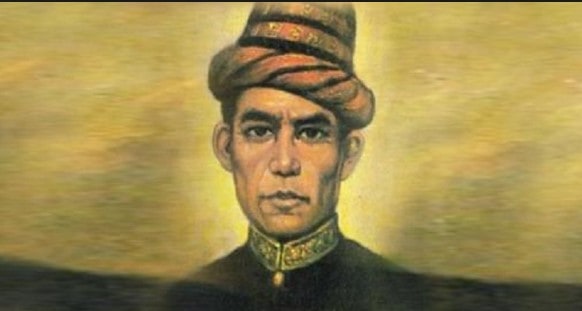By: Prabowo Subianto [taken from the Book: Military Leadership Notes from Experience Chapter I]
There are many examples in our nation’s history where the enemy outnumbered us in terms of forces, weapons, and experience. However, because of the appropriate attitude, because our leader’ virtue, honest, patriotic, smart, hard-working, and would never submit to the dominance of foreign nations, we managed to beat the odds time and again.
One of the smartest leadership stories in the colonial period of Nusantara comes from Teuku Umar’s leadership tales. As a member of the Dutch army, he managed to fool the Dutch twice with ‘mock wars’ and strengthen the Acehnese resistance movement against the invaders.
Throughout history, it has been proven repeatedly that the key to a nation’s glory is leadership. When I was in the armed forces, I learned an adage relevant to every soldier in different periods: ‘there are no bad soldiers, only bad commanders.
I learned another adage as a young officer: ‘A thousand goats led by a tiger would roar, but a thousand tigers led by a goat would bleat’.
One of the smartest leadership stories in the colonial period of Nusantara is that of Teuku Umar. Teuku Umar was born in Meulaboh, West Aceh in 1854. Since his childhood, Teuku Umar had been known as an intelligent and courageous child. He also stood firm and was perseverant in the face of difficulties.
Teuku Umar was 19 years old when he took up arms for the first time and fought against the Dutch at the onset of the first Dutch aggression in 1873. When he was 29 years old, he pretended to be a Dutch collaborator and entered the Dutch military service. He was personally greeted by Governor Van Teijn, who intended to use Teuku Umar as an ‘agent’ to garner Acehnese sympathy.
Teuku Umar proved his worth to the Dutch by crushing the Acehnese defensive posts. As a result, he was awarded a bigger role in leading 17 commanders and 120 soldiers, including an admiral.
Teuku Umar’s resistance against the Dutch began when the British ship “Nicero” was stranded in 1884. The captain and crew were taken hostage by King Teunom, who demanded a cash ransom. The Dutch Colonial Government commissioned Teuku Umar to retake the ship. However, he demanded that he be provided with a lot of equipment and weapons. The Dutch granted his request.
Later, the Dutch were stunned by the news that their soldiers who joined Teuku Umar were all killed in the middle of the sea. Teuku Umar took all weapons and equipment. Teuku Umar had turned his coat and sided with the Acehnese against them to the Dutch’s chagrin.
The ensuing protracted war between the Acehnese and the Dutch forced Teuku Umar to devise a new strategy, using an old trick he knew all too well. A true master of deception, ten years later, he surrendered himself to the Dutch again. He did this by staging a ‘mock battle’ and deployed troops to send a confidential message. The Dutch, impressed, awarded him the title ‘Teuku Johan Supreme General-Hero of the Netherlands’. Three years later, as you guessed it, Teuku Umar betrayed the Dutch for the second time. He took his troops and 800 guns, 25,000 bullets, 500 kg of ammunition, and $18,000 in cash.
After years of war against the Dutch, Teuku Umar was cornered when he arrived at the outskirts of Meulaboh City. The Dutch army learned his location; Teuku Umar and his men were surrounded. He and his men chose to directly engage the Dutch and fight their last. A single enemy bullet pierced his chest. Teuku Umar died a hero.
